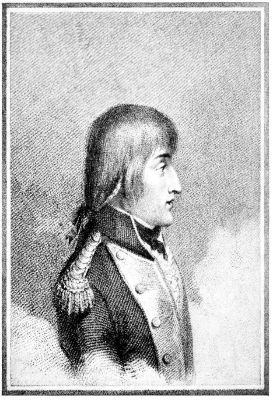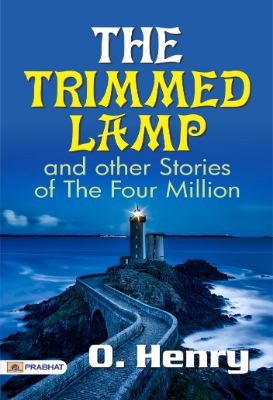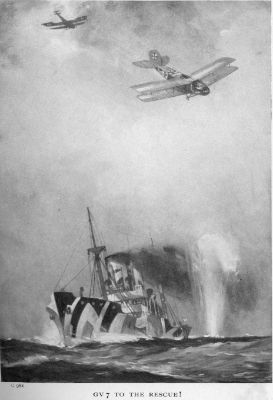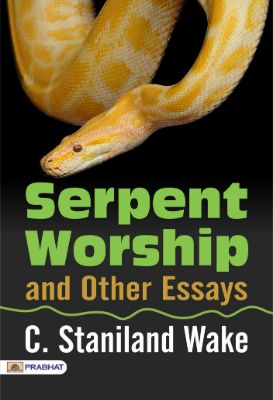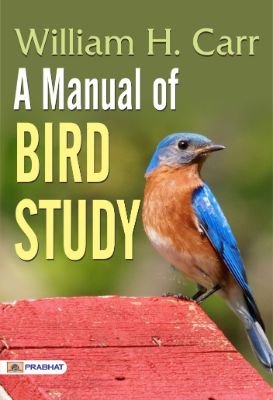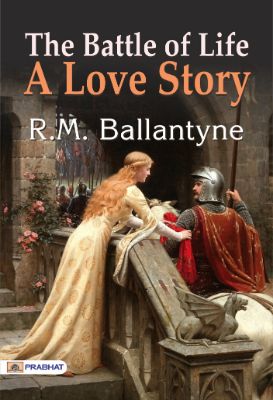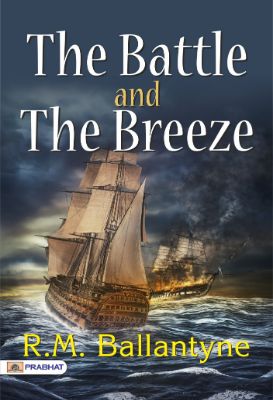Grimms’ Fairy Tales by Jacob Grimm and Wilhelm Grimm
A certain king had a beautiful garden, and in the garden stood a tree which bore golden apples. These apples were always counted, and about the time when they began to grow ripe it was found that every night one of them was gone. The king became very angry at this, and ordered the gardener to keep watch all night under the tree. The gardener set his eldest son to watch; but about twelve o’clock he fell asleep, and in the morning another of the apples was missing. Then the second son was ordered to watch; and at midnight he too fell asleep, and in the morning another apple was gone. Then the third son offered to keep watch; but the gardener at first would not let him, for fear some harm should come to him: however, at last he consented, and the young man laid himself under the tree to watch. As the clock struck twelve he heard a rustling noise in the air, and a bird came flying that was of pure gold; and as it was snapping at one of the apples with its beak, the gardener’s son jumped up and shot an arrow at it. But the arrow did the bird no harm; only it dropped a golden feather from its tail, and then flew away. The golden feather was brought to the king in the morning, and all the council was called together. Everyone agreed that it was worth more than all the wealth of the kingdom: but the king said, ‘One feather is of no use to me, I must have the whole bird.’
Gulliver’s Travels into Several Remote Nations of the World by Jonathan Swift
The author of these Travels, Mr. Lemuel Gulliver, is my ancient and intimate friend; there is likewise some relation between us on the mother’s side. About three years ago, Mr. Gulliver growing weary of the concourse of curious people coming to him at his house in Redriff, made a small purchase of land, with a convenient house, near Newark, in Nottinghamshire, his native country; where he now lives retired, yet in good esteem among his neighbours.
Through the Looking-Glass by Lewis Carroll
One thing was certain, that the white kitten had had nothing to do with it:—it was the black kitten’s fault entirely. For the white kitten had been having its face washed by the old cat for the last quarter of an hour (and bearing it pretty well, considering); so you see that it couldn’t have had any hand in the mischief.
The way Dinah washed her children’s faces was this: first she held the poor thing down by its ear with one paw, and then with the other paw she rubbed its face all over, the wrong way, beginning at the nose: and just now, as I said, she was hard at work on the white kitten, which was lying quite still and trying to purr—no doubt feeling that it was all meant for its good.
A Short Biographical Dictionary of English Literature by John W. Cousin
The primary aim of this book is to give as much information about English authors, including under this designation American and Colonial writers, as the prescribed limits will admit of. At the same time an attempt has been made, where materials exist for it, to enhance the interest by introducing such details as tend to illustrate the characters and circumstances of the respective writers and the manner in which they passed through the world; and in the case of the more important, to give some indication of the relative place which they hold and the leading features of their work.
The Book of Elves and Fairies by Frances Jenkins Olcott
Let a child open the covers of this book, and straightway he is in that land of all delights—Fairy Realm. Here Fairy Godmothers reward good children, and punish bad ones; here red-capped Little Men yield up their treasures of gold and magic gifts, while Pixies drop silver pennies in water-pails, and merry Spriggans and Fays hold nightly revels in the moonlight. Here, too, a child may dance in Fairy Rings, or hie away to Elfinland for a year and a day to play with wonder-children, pick Fairy flowers, listen to Fairy birds, and be fed on magic goodies.
The Mind of the Child, Part II by William T. Preyer
The International Education Series was projected for the purpose of bringing together in orderly arrangement the best writings, new and old, upon educational subjects, and presenting a complete course of reading and training for teachers generally. It is edited by W. T. Harris, LL. D., United States Commissioner of Education, who has contributed for the different volumes in the way of introductions, analysis, and commentary. The volumes are tastefully and substantially bound in uniform style.
The Exhibition Drama by George M. Baker
In the preparation of “The Exhibition Drama,” the author has endeavored to present as great a variety as in the previous volumes of this series, and to comply, as far as possible, with the requests of numerous correspondents. Thus “Enlisted for the War” was written in response to a demand for something, based on the late civil war, which should meet the requirements of various Posts of the G. A. R. The musical allegories, “The Visions of Freedom,” and “The Tournament of Idylcourt,” were prepared for the graduating-class in a Boston grammar-school, and are of the same general character as those previously issued. The Christmas entertainment, and the dramatization of Dickens’s “Christmas Carol,” have both been successfully performed at sabbath-school entertainments. These, as well as the allegories, are plentifully supplied with tableaux, easily represented, and are adapted to the wants of many occasional exhibitions.
The Old and the New Magic by Henry Ridgely Evans
The very word magic has an alluring sound, and its practice as an art will probably never lose its attractiveness for people’s minds. But we must remember that there is a difference between the old magic and the new, and that both are separated by a deep chasm, which is a kind of color line, for though the latter develops from the former in a gradual and natural course of evolution, they are radically different in principle, and the new magic is irredeemably opposed to the assumptions upon which the old magic rests.
The Humour of America by Various
When the unfortunate man standing on the scaffold was asked by a spectator to make a speech, he said that, considering the interesting programme which had been prepared by their good friend the Sheriff, he could not hope to say anything likely to amuse them. The compiler of a book of humour may recognise a like anxiety on the part of the public to push on to the principal attraction. There arises on his mental vision the eager face of the book-buyer, as he hurriedly skims over the leaves at the commencement of the volume, to find the end of the introduction and the beginning of the humour.
The Village Champion by William Osborn Stoddard
It was towards the end of a very hot summer, and all the human population of that crowded square of the great city had spent the first half of the night in the streets. Either that, or in leaning halfway out of their windows to get a breath of fresh air.
Now that sunrise was again so near at hand, however, and the breeze from the sea had done so much to make the world more comfortable to live in, the closely-built “hotels” and tenement houses were all asleep.
The former were mostly of the sort that sell lager beer and other things in the basement, and the latter were just the kind of places in which men and women ought not to live.
The Puppet Show of Memory by Maurice Baring
When people sit down to write their recollections they exclaim with regret, “If only I had kept a diary, what a rich store of material I should now have at my disposal!” I remember one of the masters at Eton telling me, when I was a boy, that if I wished to make a fortune when I was grown up, I had only to keep a detailed diary of every day of my life at Eton. He said the same thing to all the boys he knew, but I do not remember any boy of my generation taking his wise advice.
The Loss of His Majesty’s Frigate Anson by Unknown
“On the 27th of December, 1807, cruizing off the Black Rocks, and perceiving the approach of a gale, kept a look out for the commodore in the Dragon. The next morning (Monday) the gale increasing from the S.W. and not perceiving the Dragon in any direction, at nine o’clock, shaped our course for the Lizard, with a view of getting into Falmouth.
British Museum (Natural History) General Guide by British Museum
This Guide is intended for the use of those visitors who wish merely to get a general idea of the arrangements and contents of the Natural History Museum.
Special Guides have been published for the use of visitors who wish to make a closer study of the collections; a list of them is given on pages 116–18.
Napoleon by Thomas E. Watson
n this volume the author has made the effort to portray Napoleon as he appears to an average man. Archives have not been rummaged, new sources of information have not been discovered; the author merely claims to have used such authorities, old and new, as are accessible to any diligent student. No attempt has been made to give a full and detailed account of Napoleon’s life or work. To do so would have required the labor of a decade, and the result would be almost a library. The author has tried to give to the great Corsican his proper historical position, his true rating as a man and a ruler,—together with a just estimate of his achievements.
The Trimmed Lamp, and other Stories of the Four Million by O. Henry
Of course there are two sides to the question. Let us look at the other. We often hear “shop-girls” spoken of. No such persons exist. There are girls who work in shops. They make their living that way. But why turn their occupation into an adjective? Let us be fair. We do not refer to the girls who live on Fifth Avenue as “marriage-girls.”
Winning his Wings by Percy F. Westerman
The cry, taken up by a score of youthful voices, echoed and re-echoed along the concrete-paved corridors of the Averleigh T.D.S.—such being the official designation of the Training and Disciplinary School—one of those mushroom-growth establishments that bid fair to blossom into permanent instruction schools under the aegis of the juvenile but virile Royal Air Force.
Serpent-Worship and Other Essays by C. Staniland Wake
The lines of development of the religious faiths of mankind have been aptly termed by Major-General Forlong “Rivers of Life.” The streams of faiths are marvellously depicted by this writer in a chart which shows “the rise and fall of the various religious ideas, mythologies, and rites which have at any time prevailed among nations.” This chart ingeniously shows, moreover, “the degrees of intensity manifested at stated periods by any particular wave of doctrine or worship, and the mode in which the tributary streams of mythological or theological thought become in turn absorbed in the central River of Life.” The views adopted by General Forlong have much in common with those embodied in the works of Godfrey Higgins and some later writers, but they have a special value as being based on personal observation.
A Manual of Bird Study by William H. Carr
This Bird Study Manual is intended especially for the use of teachers and pupils in the New York City Schools. It is written primarily to describe the birds contained in the circulating nature study collections which the American Museum of Natural History loans to public schools. However it may be used as a general guide to bird study as well. The various study outlines tell the story of different projects that may be developed in connection with birds. Typical birds are illustrated. As much as is possible in the life history of each bird is given. The bird poems may be used in connection with the study of English. The study of birds may very well be correlated with the studies of many other subjects such as Civics, Geography and other topics.
The Behavior of the Honey Bee in Pollen Collection by Dana Brackenridge Casteel
While working upon the problem of wax-scale manipulation during the summer of 1911 the writer became convinced that the so-called wax shears or pinchers of the worker honey bee have nothing whatever to do with the extraction of the wax scales from their pockets, but rather that they are organs used in loading the pollen from the pollen combs of the hind legs into the corbiculæ or pollen baskets (Cast eel, 1912). Further observations made at that time disclosed the exact method by which the hind legs are instrumental in the pollen-loading process and also the way in which the middle legs aid the hind legs in patting down the pollen masses. During the summer of 1912 additional information was secured, more particularly that relating to the manner in which pollen is collected upon the body and legs of the bee, how it is transferred to the hind legs, how it is moistened, and finally the method by which it is stored in the hive for future use.
The Sealed Valley by Hulbert Footner
One of the fairest paintings of Nature was at that point among the mountains of the Canadian province of Cariboo where the Campbell River takes the Boardman to its bosom and swings south on its pilgrimage to the Pacific. Like all of Nature’s more dramatic compositions, by reason of its very effectiveness, it was predestined to be smudged by a town, and the collection of shacks and tents known as Fort Edward was already begun. It was conceded that Fort Edward was bound to be a great city when the new transcontinental passed through. To be sure, railhead was still beyond the mountains, a matter of two or three years’ construction, but the noise of the town’s greatness-to-be had been industriously drummed up by real-estate operators outside, and many optimists had struggled up the three hundred miles of the Campbell Valley from the existing railway to be on hand in plenty of time.
How Does a Tree Grow? Botany for Young Australian by James Bonwick
Willie was a fine rosy-faced boy of our southern colony. Though not eight years of age, he was as healthy and merry a lad as ever climbed up a Gum tree, picked up manna, or rode in a bullock dray.
His father had once occupied a good position in Old England; but the uncertainties and losses of business, and the constant struggle to uphold a respectable appearance with decreasing means, became so burdensome to his mind, that his spirits failed, and his energies sunk. His attention was directed to Australia, the land of mutton and corn, the home of health and plenty. Gathering up the wreck of the past, he left the country of taxation and paupers, and established himself on a small farm in Port Phillip.
The Camp Fire Girls at Driftwood Heights by Margaret Love Sanderson
For a brief instant following her spoken pledge, an eloquent silence reigned over the circle of picturesque figures seated about the brightly-blazing camp fire. Then a storm of acclamation rent the still night air, echoing and re-echoing among the giant oaks that hemmed in the company of ardent fire-worshippers. To hear Ruth Garnier repeat the desire of the Torch Bearer was indeed sufficient reason for applause on the part of her comrades of school and Camp Fire. No one of them was more honestly deserving of that honor than sunny, self-reliant Ruth. It was the highest to which she could attain as a Camp Fire Girl until the passing of years should render her eligible to the post of Guardian.
The Battle of Life: A Love Story by Charles Dickens
Once upon a time, it matters little when, and in stalwart England, it matters little where, a fierce battle was fought. It was fought upon a long summer day when the waving grass was green. Many a wild flower formed by the Almighty Hand to be a perfumed goblet for the dew, felt its enamelled cup fill high with blood that day, and shrinking dropped.
The Battle and the Breeze by R.M. Ballantyne
When Bill was a baby—a round-faced, large-eyed, fat-legged baby, as unlike to the bronzed, whiskered, strapping seaman who went by the name of “Fighting Bill” as a jackdaw is to a marlinespike—when Bill was a baby, his father used to say he was just cut out for a sailor; and he was right, for the urchin was overflowing with vigour and muscular energy. He was utterly reckless, and very earnest—we might almost say desperately earnest. Whatever he undertook to do he did “with a will.” He spoke with a will, listened with a will, laughed, yelled, ate, slept, wrought, and fought with a will. In short, he was a splendid little fellow, and therefore, as his father wisely said, was just cut out for a sailor.
Buttered Side Down: Stories by Edna Ferber
Any one who has ever written for the magazines (nobody could devise a more sweeping opening; it includes the iceman who does a humorous article on the subject of his troubles, and the neglected wife next door, who journalizes) knows that a story the scene of which is not New York is merely junk. Take Fifth Avenue as a framework, pad it out to five thousand words, and there you have the ideal short story.
Consequently I feel a certain timidity in confessing that I do not know Fifth Avenue from Hester Street when I see it, because I’ve never seen it. It has been said that from the latter to the former is a ten-year journey, from which I have gathered that they lie some miles apart. As for Forty-second Street, of which musical comedians carol, I know not if it be a fashionable shopping thoroughfare or a factory district.
The Best American Humorous Short Stories by H. C. Bunner et al.
The Nice People, by Henry Cuyler Bunner, is republished from his volume, Short Sixes, by permission of its publishers, Charles Scribner’s Sons. The Buller-Podington Compact, by Frank Richard Stockton, is from his volume, Afield and Afloat, and is republished by permission of Charles Scribner’s Sons. Colonel Starbottle for the Plaintiff, by Bret Harte, is from the collection of his stories entitled Openings in the Old Trail, and is republished by permission of the Houghton Mifflin Company, the authorized publishers of Bret Harte’s complete works.
Who Spoke Next by Eliza Lee Cabot Follen
“It appeared to me,” said the mother, “that the old musket was not very willing to tell his story. He had a sort of old republican pride, and felt himself superior to the rest of the company in character and importance. When he had made himself heard in the world hitherto, it had always been by one short, but very decided and emphatic word; he despised any thing like a palaver; so he began very abruptly, and as if he had half a mind not to speak at all, because he could not speak in his own way.
Two Festivals by Eliza Lee Cabot Follen
“How beautiful!” said Frank and Harry. “Suppose, Mother,” said Harry, “it should rain, and hail, and snow to-morrow, for it looks like it now, and then you know we cannot go into the woods and gather flowers; and all our plans will be spoiled.” “Why, then, my dear, we must enjoy May morning as the great poet did, after he lost his sight, with our mind’s eye; and you must bear your disappointment patiently.” “Easier said than done, Mother,” said Harry. “Why, only think of all our preparations, and the beautiful wreath you made for Lizzy Evans, who is to be queen of the May, and how pretty she would look in it, and then think of the dinner in the woods, we all sitting round in a circle, and she and the king of the May in the midst of us, and Ned Brown playing on his flageolet; and then you know we are all to walk home in procession, and have a dance at his mother’s after tea.” “You will not lose your dance, Harry,” said his mother, “if it should hail, and rain, and snow; but, on the contrary, enjoy it all the more, for then you will riot be fatigued by a long walk; and Lizzy can wear the wreath at any rate.”
The Little Lame Prince by Dinah Maria Mulock Craik and Margaret Waters
He was the most beautiful prince that ever was born.
Being a prince, people said this; and it was true. When he looked at the candle, his eyes had an earnest expression quite startling in a new-born baby. His nose was aquiline; his complexion was healthy; he was round, fat, and straight-limbed—a splendid baby.
His father and mother, King and Queen of Nomansland, and their subjects were proud and happy, having waited ten years for an heir. The only person not quite happy was the king’s brother, who would have been king had the baby not been born, but his Majesty was very kind to him, and gave him a Dukedom as large as a country.
Stories by Foreign Authors: Scandinavian by Juhani Aho et al.
The man whose story is here to be told was the wealthiest and most influential person in his parish; his name was Thord Overaas. He appeared in the priest’s study one day, tall and earnest.
“I have gotten a son,” said he, “and I wish to present him for baptism.”
“What shall his name be?”
“Finn,—after my father.”
“And the sponsors?”














